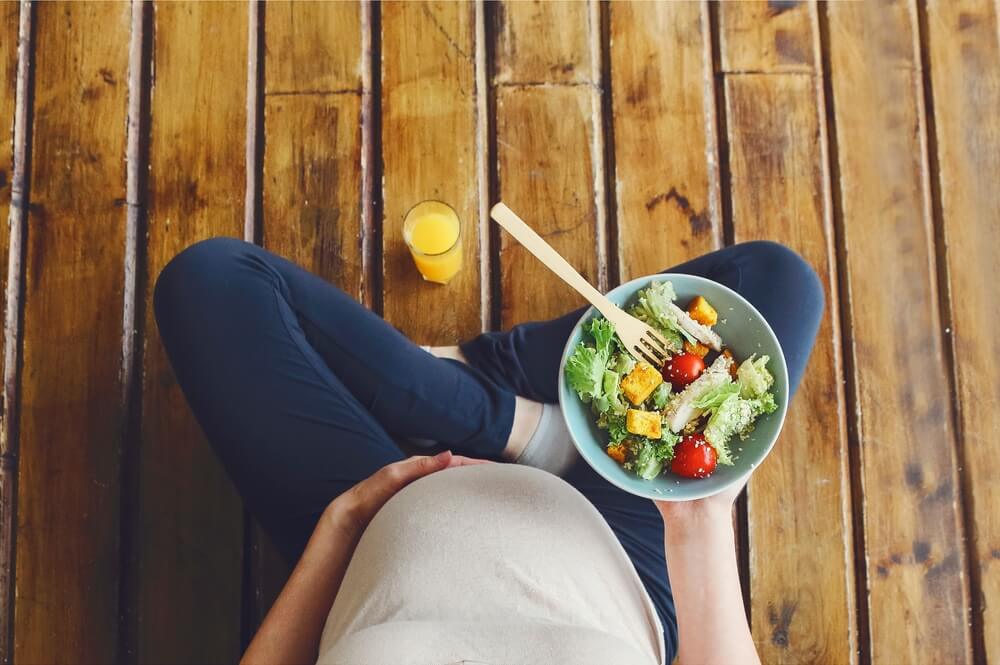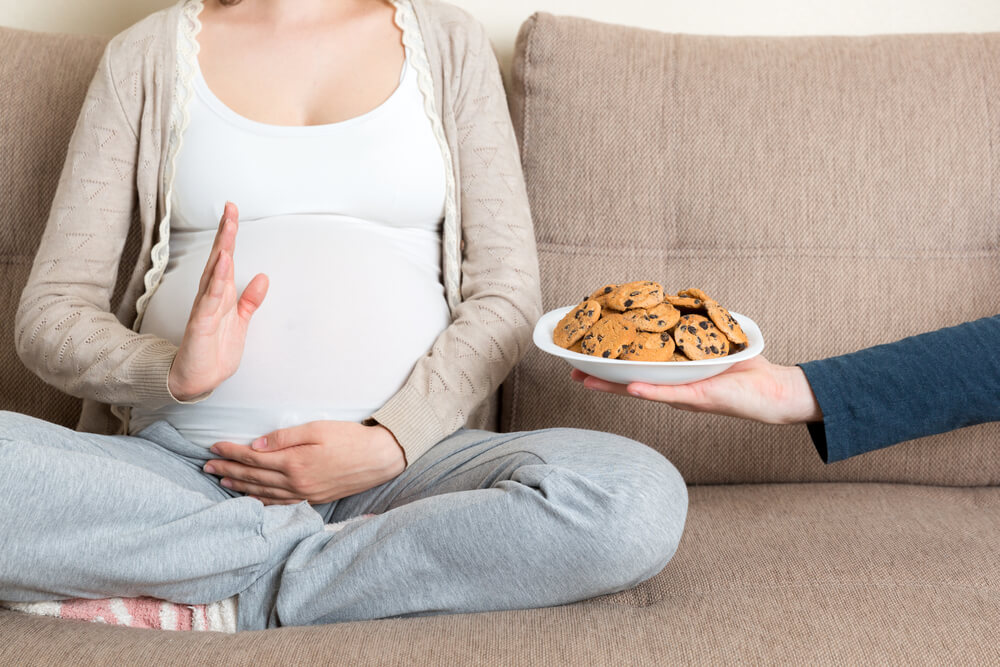Pregnancy is a time of great joy and excitement, but it is also a time when you need to be extremely careful about what you eat and drink. There are a number of foods pregnant women should not eat, as they can pose a risk to the developing baby. Following a healthy pregnancy diet can be overwhelming due to excessive information. However, there are some general guidelines that women should follow regarding nutrition. If you need advice on how to eat in the most beneficial way possible and have a healthy pregnancy, you can count on our obstetrician in Sarasota, Florida. That said, keep reading to find out more.
What Should I Eat During Pregnancy?
Nutrition during pregnancy is vital in maintaining not only the health of the mother but also that of the unborn baby. Women should be aware of what foods to avoid during pregnancy as well as what they should avoid for proper nourishment and fetal development.
How much and what food you should eat during pregnancy depends on many factors. There is usually a certain amount of calories, as well as macros, that you should consume. Experts typically recommend 300 calories more per day, assuming these come from a balanced diet. However, no single perfect regime works for every woman, but following those guidelines will help ensure that both you and your baby are getting everything you need to be healthy and happy throughout the pregnancy.
Pregnancy requires more iron, folic acid, zinc, vitamin D, omega-3 fatty acids, vitamin B, and vitamin C. Aside from taking prenatal supplements, it is recommended to get these from food sources. A great start is writing down the list of nutritious ingredients you need to eat. Try starting with these:
- Lean meat and other types of protein: chicken, lean beef, and pork are fantastic sources of high-quality protein. Pork and beef are also rich in vitamin B, iron, and choline. Iron is essential for the pregnancy diet because it helps with blood increase, the process that supplies your baby with more oxygen.
- Whole grains: unlike processed grains, these are packed with fiber. Some of them even contain high amounts of protein and vitamin B. They include oats, brown rice, quinoa, barley, whole-wheat pasta, etc.
- Dairy products: as stated previously, you need to consume a lot of protein during gestation. Therefore, milk, yogurt, and cheese should definitely be on your shopping list. They will also provide you with magnesium, calcium, phosphorus, vitamin B, and zinc. You can try kefir, too, which will help with constipation and overall gut health.
- Legumes: this food group includes beans, peas, chickpeas, lentils, and peanuts and is an excellent source of fiber, folate, protein, calcium, and iron. Folate is especially important for your baby during the first trimester.
- Eggs: these are a fantastic source of high-quality protein, as well as healthy fats, and many vitamins and minerals. They also contain choline, vital for the baby’s brain growth.
- Avocados: this buttery fruit is packed with fiber, and vitamins E, K, and C. It also has a lot of healthy fats that help form the brain and tissues of your baby.
- Fish oil: this is an excellent source of omega-3 fatty acids called DHA and EPA, which are essential for the proper development of the brain, eyes, and reproductive cells. It is believed to also help with preterm delivery and fetal eye development.
- Water: everyone needs to be hydrated, but pregnant ladies especially so. . If you are having trouble with constipation, water (besides fiber) will be your best friend. Aim for two liters daily, which is between 8 and 12 cups. You can also get water from other sources like tea, coffee, fruits, and vegetables.

Foods to Avoid During Pregnancy
During the gestation period, it is crucial to avoid certain foods since they pose a risk to your baby’s development. Unfortunately, there are many foods pregnant women should not eat.
Some ingredients and supplements carry viruses, parasites, bacteria, or toxins, which may cause diarrhea or vomiting. Food poisoning isn’t a serious health condition, but as your pregnancy progresses, your immune system is more unstable, which means you are at greater risk of getting sick from different infectious agents. The following is the list of food to avoid during pregnancy:
- Undercooked or raw meat, cured meats, poultry: these types of meat, including raw cured meats such as chorizo, ham, and salami, can carry toxic parasites like Salmonella, Listeria, or Toxoplasma gondii. You can prevent any side effects by cooking meat thoroughly. However, it is recommended to stay away from these.
- Undercooked or raw eggs: they also can contain the Salmonella bacteria. Avoid foods that have raw eggs in them, such as mayonnaise and homemade desserts. You can still enjoy eggs, of course; just make sure to cook them properly.
- Undercooked or raw seafood and fish high in mercury: as with the previously listed foods, seafood is safe to eat as long as it’s cooked well. Avoid dishes that contain raw fish and shellfish, such as sushi, sashimi, ceviche, and raw oysters. As for the high mercury levels in fish, those can be found in sharks, marlins, swordfish, and king mackerel.
- Raw or unpasteurized dairy: pasteurization is a process where heat kills harmful bacteria. Thus, avoiding products containing unpasteurized milk, such as soft cheeses, unprocessed milk, and cream, is advised.
- Liver (products) and too much vitamin A: avoid eating liver or any supplements that include it, as it is high in vitamin A. Some studies show that vitamin A has been linked to liver damage and congenital disabilities. Therefore, you should also avoid all prenatal supplements with a high dosage of it.
- Alcohol: it is not safe to drink it in any phase of your pregnancy, and no level of alcohol consumption is considered normal. The placenta absorbs alcohol through the mother’s blood, and the baby gets exposed to it. It can affect your child’s development and result in miscarriage or stillbirth. One common side effect is fetal alcohol syndrome (FAS), a health condition where the newborn has lifelong physical and mental issues.
- Caffeine: experts recommend limiting caffeine intake to 200 mg per day. This includes coffee, tea, energy drinks, some desserts, etc. It has been found in some studies that too much caffeine has been linked to low birth weight, as well as miscarriage and stillbirth. If you still want to enjoy coffee, try switching to a caffeine-free version.
- Unwashed fruits and vegetables: thoroughly wash all raw produce to get rid of any unwanted bacteria. Also, avoid raw sprouts such as bean sprouts, alfalfa, and radish sprouts since these can carry Salmonella, Listeria, and E. coli. Washing them is not enough; they need to be cooked.

Nutrition during pregnancy allows you to be more creative in the kitchen. Although there are many foods to avoid during pregnancy, you can rest assured that there are delicious alternatives that you can consume instead.
Make sure to write down a list of food to avoid during pregnancy so you can keep track of what you can and cannot eat. You don’t need to stress if you have already eaten something risky, but if you experience vomiting or diarrhea, call your doctor as soon as possible.
For any additional questions or dilemmas, feel free to call our experts at University Park OBGYN and schedule an appointment.


